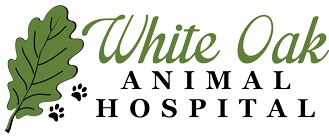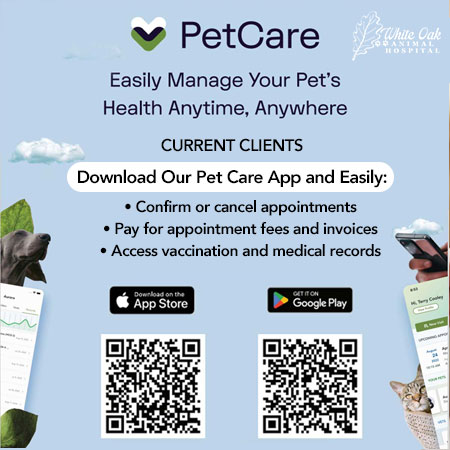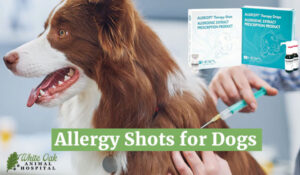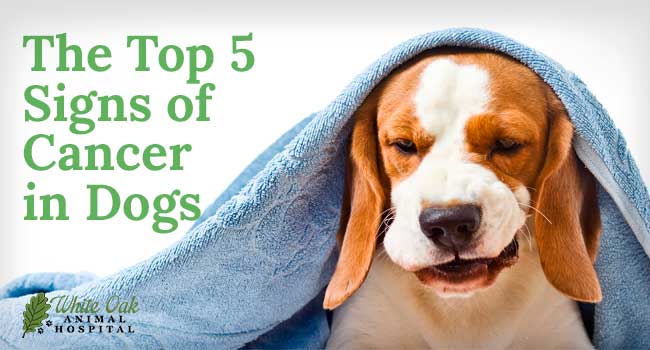
Understanding the signs of cancer in dogs is crucial for pet owners. Early recognition of these signs can profoundly influence the success of treatment and contribute to the overall health and happiness of the pet. Regrettably, cancer is a prevalent concern among dogs, with specific breeds exhibiting higher susceptibility than others. Therefore, equipping oneself with knowledge about these common signs becomes imperative for every pet owner. By staying vigilant and familiarizing themselves with the telltale indicators of cancer, pet owners can take proactive measures to seek veterinary assistance promptly. This proactive approach not only facilitates timely diagnosis and treatment but also holds the potential to enhance the prognosis for their beloved canine companions.
Understanding Canine Cancer
 Canine cancer poses a considerable worry for pet owners, highlighting the vital necessity of comprehending its signs and consequences. Cancer in dogs exhibits diverse manifestations, ranging from skin tumors to internal organ malignancies. Regrettably, statistical data underscores a significant prevalence of cancer among dogs, with particular breeds displaying heightened susceptibility to this disease. Grasping these trends is paramount for pet owners, facilitating proactive monitoring and timely intervention. Pet owners can expeditiously seek veterinary assistance by acquainting themselves with the prevalent signs of cancer in dogs, potentially improving their dog’s prognosis and quality of life. Pet owners must remain vigilant and informed about the signs of cancer in dogs to ensure prompt detection and appropriate care for their beloved companions.
Canine cancer poses a considerable worry for pet owners, highlighting the vital necessity of comprehending its signs and consequences. Cancer in dogs exhibits diverse manifestations, ranging from skin tumors to internal organ malignancies. Regrettably, statistical data underscores a significant prevalence of cancer among dogs, with particular breeds displaying heightened susceptibility to this disease. Grasping these trends is paramount for pet owners, facilitating proactive monitoring and timely intervention. Pet owners can expeditiously seek veterinary assistance by acquainting themselves with the prevalent signs of cancer in dogs, potentially improving their dog’s prognosis and quality of life. Pet owners must remain vigilant and informed about the signs of cancer in dogs to ensure prompt detection and appropriate care for their beloved companions.
The Top 5 Signs of Cancer in Dogs
Unexplained Weight Loss
Sudden weight loss in dogs can be a crucial indicator of potential cancerous conditions. While weight loss can sometimes be attributed to other health issues, such as dental problems or infections, seeking professional veterinary advice is essential if your dog experiences unexplained weight reduction. Consulting a veterinarian promptly when you notice such weight loss ensures that any underlying health concerns, including the possibility of cancer, can be accurately diagnosed and addressed appropriately. Therefore, staying vigilant about your dog’s weight and taking prompt action in response to any unexplained changes are vital aspects of responsible pet ownership, ultimately contributing to your beloved canine companion’s overall health and well-being.
Changes in Bathroom Habits
Pet owners should closely monitor changes in their dog’s bathroom habits. Whether your dog experiences difficulty urinating or defecating, these changes could indicate various health issues, including infections or, in severe cases, potential signs of cancer in dogs. It’s crucial to seek timely veterinary care to diagnose the underlying cause and start appropriate treatment accurately. Neglecting these changes may result in worsening symptoms and complications, underscoring the importance of addressing them promptly. By prioritizing your dog’s health and swiftly addressing any alterations in bathroom habits, you can facilitate early detection and intervention, ultimately enhancing your furry friend’s prognosis and overall well-being.
defecating, these changes could indicate various health issues, including infections or, in severe cases, potential signs of cancer in dogs. It’s crucial to seek timely veterinary care to diagnose the underlying cause and start appropriate treatment accurately. Neglecting these changes may result in worsening symptoms and complications, underscoring the importance of addressing them promptly. By prioritizing your dog’s health and swiftly addressing any alterations in bathroom habits, you can facilitate early detection and intervention, ultimately enhancing your furry friend’s prognosis and overall well-being.
Lumps and Bumps Underneath the Skin
Regularly inspecting your dog’s skin for unusual lumps or bumps is essential for pet owners, especially considering the potential significance of detecting signs of cancer in dogs. These abnormalities might signal the onset of tumors, with the possibility of some being cancerous. However, it’s crucial to recognize that not all lumps indicate cancer; they could also be benign growths or other non-cancerous issues. Nonetheless, it’s prudent to seek a professional assessment from a veterinarian to ascertain the nature of these lumps and exclude the likelihood of cancer. This proactive approach enables early identification and intervention if cancerous growths are present, potentially improving outcomes for your furry companion.
Persistent Coughing or Difficulty Breathing
Persistent coughing or difficulty breathing in dogs should never be overlooked, as they may indicate more than a passing ailment. While it’s common for humans to experience coughs and colds, dogs don’t typically exhibit these symptoms without a reason. Therefore, when a dog displays persistent coughing or difficulty breathing, it’s essential to consider potential underlying health issues, with signs of cancer in dogs being one of them.
Non-healing Wounds or Sores
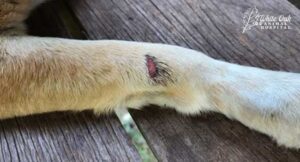 Wounds or sores that fail to heal correctly can concern pet owners, as they may be a sign of cancer in dogs. Pet owners should carefully observe and monitor even seemingly minor wounds that linger without improvement. Pet owners must remain vigilant and attentive to any non-healing sores, regardless of their size or severity, and promptly seek professional evaluation from a qualified veterinarian. By proactively monitoring for signs of cancer in dogs, like non-healing wounds or sores, pet owners can take proactive steps to safeguard the health of their beloved pets and potentially identify any health issues early, leading to more effective treatment outcomes in the long run.
Wounds or sores that fail to heal correctly can concern pet owners, as they may be a sign of cancer in dogs. Pet owners should carefully observe and monitor even seemingly minor wounds that linger without improvement. Pet owners must remain vigilant and attentive to any non-healing sores, regardless of their size or severity, and promptly seek professional evaluation from a qualified veterinarian. By proactively monitoring for signs of cancer in dogs, like non-healing wounds or sores, pet owners can take proactive steps to safeguard the health of their beloved pets and potentially identify any health issues early, leading to more effective treatment outcomes in the long run.
Vigilance for signs of cancer in dogs is crucial for owners. These signs of cancer in dogs should prompt immediate veterinary care. Early detection enhances treatment success and improves prognosis—regular check-ups aid in catching cancer early. Pet owners can ensure the best outcomes for their beloved companions by staying alert and seeking prompt medical attention when necessary. Don’t ignore potential signs of cancer in dogs; early intervention is critical to their health and well-being.
Taking Action: What to Do if You Notice These Signs
If you notice signs of cancer in your dog, immediate action is crucial. Consult a veterinarian promptly to assess the situation thoroughly. Provide detailed information about the observed signs and follow through with any recommended diagnostic tests. Discuss treatment options tailored to your dog’s condition, including surgery, chemotherapy, or radiation therapy.
Offer your dog unwavering support and care throughout the treatment process, ensuring they receive medications as prescribed and maintaining regular communication with the veterinarian. Monitor your dog closely for any changes in symptoms and attend follow-up appointments as scheduled. Your proactive approach to addressing signs of cancer in dogs can significantly impact their health and well-being. Remember, early detection and intervention are paramount for improving treatment outcomes and ensuring your beloved canine companion’s best possible quality of life.
 If you’ve noticed any signs of cancer in your dog, it’s essential to take prompt action to ensure their well-being. Bringing your pet to White Oak Animal Hospital for an appointment with Dr. Casey Damron can provide them with the best care. At White Oak, we offer integrative options not available elsewhere, including TCVM Telemedicine consultations. With over 28 years of experience and having treated over 6,000 pets, you can trust that your furry companion will receive expert attention and personalized treatment. Don’t hesitate to schedule an appointment at White Oak Animal Hospital to address your dog’s health concerns. Your proactive approach can make a significant difference in their quality of life.
If you’ve noticed any signs of cancer in your dog, it’s essential to take prompt action to ensure their well-being. Bringing your pet to White Oak Animal Hospital for an appointment with Dr. Casey Damron can provide them with the best care. At White Oak, we offer integrative options not available elsewhere, including TCVM Telemedicine consultations. With over 28 years of experience and having treated over 6,000 pets, you can trust that your furry companion will receive expert attention and personalized treatment. Don’t hesitate to schedule an appointment at White Oak Animal Hospital to address your dog’s health concerns. Your proactive approach can make a significant difference in their quality of life.
Frequently Asked Questions
What should I do if I suspect my dog may have cancer?
If you suspect your dog may have cancer, it’s essential to consult a veterinarian promptly for a thorough evaluation. Your veterinarian can perform diagnostic tests to determine if cancer is present and recommend appropriate treatment options.
Are there any signs of cancer in dogs that I might overlook?
While some signs of cancer in dogs such as lumps or weight loss may be more noticeable, other symptoms, like changes in behavior or appetite, could be subtle and easily overlooked. Pay attention to changes in your dog’s health and behavior, and consult a veterinarian if you have any concerns.
How can I best support my dog if they are diagnosed with cancer?
Supporting a dog diagnosed with cancer involves providing them with comfort, care, and any necessary medical treatment. Work closely with your veterinarian to develop a treatment plan tailored to your dog’s needs and follow their recommendations for medications, dietary adjustments, and monitoring. Additionally, offering your dog love and attention can help them cope with the challenges of cancer treatment.
Related Posts
-
Top Dog Cancer Natural Remedies
Many natural dog cancer remedies are available today. Most dog cancer natural treatments can be…
-
Top 3 Flaxseed Nutrition Benefits For Dogs
Flaxseed is one of nature’s greatest medicines. Humans and pets alike can consume this unique…
-
Discover the Role of an Animal Cancer Surgeon in Veterinary Medicine: Exploring 5 Signs of Cancer in Pets That May Require Surgery
In veterinary medicine, an animal cancer surgeon's role in our pets' well-being is profound, and…
-
Personalization and Success: 5 Reasons Why Holistic Cancer Treatment for Dogs is the Best Choice
Holistic cancer treatment for dogs is a distinct and personalized approach that stands out amidst…
